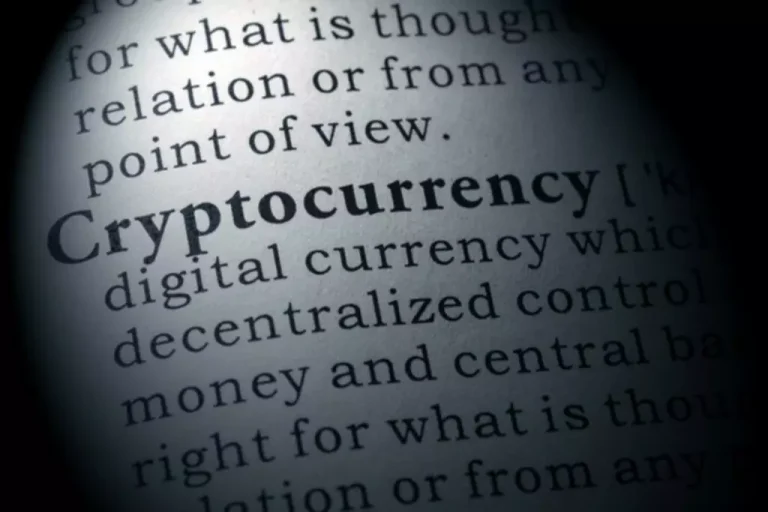Your cart is currently empty!
Smart Contracts: Types, Benefits, and Tools
Content
This blog provides an example of a bare-bones, “Hello World” smart smart contract examples contract written in Solidity. Perhaps the best metaphor for a smart contract is a vending machine, as described by Nick Szabo(opens in a new tab). Smart contracts are code written into a blockchain that executes the actions two parties agree to outside the chain. By automating these actions, the need for an intermediary or trust between the parties is removed. Smart contracts permit trusted transactions and agreements to be carried out among disparate, anonymous parties without the need for a central authority, legal system, or external enforcement mechanism. You may be wondering how Bitcoin NFTs and Ordinals use smart contracts.

Smart Contract Vulnerabilities and Risks
Bugs, security holes and other vulnerabilities roll out the welcome mat https://www.xcritical.com/ for hackers, said Tantsiura of the App Solutions Company. That lack of privacy also makes smart contracts less than ideal for discreet transactions, for instance the purchase of art by a buyer who’d just as soon remain anonymous. The main point of smart contracts is that they provide an effective way of verifying, enforcing, and executing predetermined conditions set between two parties. When a triggering event occurs, a smart contract self-executes on a blockchain the terms set forth in the predetermined agreement. Gas fees fluctuate widely and are mostly determined by supply and demand and the number of validators operating.
Taco Bell Unveils Drive-Thru With Voice AI, Sets Eyes on Future Tech Innovations
Dapps, or “dApps”, defined more precisely as decentralized applications, are distributed (often open source) computer programs that operate and run on a blockchain or a peer-to-peer network (P2P). By nature of their decentralized operation, they are not controlled by one single author, company, or organization. Dapps are starting to be used and adopted by a number of different sectors, including gaming, banking, and finance, due to offering greater security and transparency. They are already being used for financial trades and services, insurance, credit authorization, legal processes, supply Proof of space chain processes, and even for crowdfunding agreements (ICOs). Ethereum-based smart contracts may be used to create digital tokens for performing transactions. You may design and issue your own digital currency, creating a tradable computerized token.
How Do I Deploy a Smart Contract?
If verified by all nodes, the contract’s state is then updated accordingly. The transactions are automated and self-executed through the code, which ideally, if all runs according to plan, removes the need for a third party to execute the contract. Smart contracts are executed by the blockchain nodes as a result of processing transactions that are submitted by a user (e.g., performing a token swap from ETH to CRO).
Conversion of assets into non-fungible tokens (NFTs)
He sends $5 worth of cryptocurrency to the Axa Insurance smart contract and provides his flight number. Without the use of a smart contract in this scenario, Mike and John would have to pay lots of fees to third-party companies. Once this smart contract agreement has been put into place, it cannot be changed — meaning John can feel safe to pay Mike 300 Ether for the house. However, before jumping into the in-depth analysis of the essence of smart contracts, let’s quickly talk about Ethereum. So, the purpose of this guide is to help you understand what is a smart contract and how do smart contracts work. Therefore, whenever your data is used in a contract, it is stored indefinitely for future reference.
This will enable you to detect and correct contract errors before it’s too late. Modifying smart contract protocols is nearly impossible, and fixing code errors can be costly and time-consuming. Even if smart contracts conform to the laws of different countries, it might be tough to guarantee that they are adhered to globally.
We can already see examples of smart contracts being used in the medical industry by the likes of EncrypGen. This is an application that uses smart contracts to transfer patient data in a secure way, allowing no access from third parties. As smart contracts function on a decentralized and trustless network, the code must be trusted. A smart contract’s flaws can be attacked, and the deposited funds can be misappropriated. Smart contracts may work autonomously without mediators or third parties because they are self-executing.
For information pertaining to the registration status of 11 Financial, please contact the state securities regulators for those states in which 11 Financial maintains a registration filing. 11 Financial is a registered investment adviser located in Lufkin, Texas. 11 Financial may only transact business in those states in which it is registered, or qualifies for an exemption or exclusion from registration requirements. 11 Financial’s website is limited to the dissemination of general information pertaining to its advisory services, together with access to additional investment-related information, publications, and links. This reduction in paperwork not only saves time and money but also decreases the chance of manual errors and misinterpretations that can lead to costly legal disputes.
The centralized crowdfunding system has many issues with management systems. To combat this, a DAO (Decentralized Autonomous Organization) is utilized for crowdfunding. The terms and conditions are set in the contract, and every individual participating in crowdfunding is given a token.
A smart contract can remove the need to trust multiple parties in the process of buying something. Ethereum has its programming language, called Solidity, which developers use to write these contracts. The platform’s security, decentralisation and community have made it a leading choice for developers leveraging smart contract capabilities.
For example, California can issue marital and birth certificates as smart contracts. When it comes to the types of smart contracts, they are classified into three categories — legal contracts, decentralized autonomous organizations or DAOs, and logic contracts. Furthermore, smart contracts execute automatically once their conditions are met, meaning that they cannot be manipulated or ignored. The blockchain could receive flight status data from trusted sources, and if a cancellation occurs, the smart contract would automatically execute the payout to the insured. Smart contracts may find good use cases in real estate, as they can help facilitate reliable transactions that require trust and transparency from all parties involved.
So, the question “what is a smart contract?” should not scare you anymore. You want to raise $10,000,000 to start your project and build your application — let’s imagine that $10,000,000 is equal to 10,000 Ether. You decide you’re going to put 100,000 ABC tokens into the smart contract, and that each ABC token is going to be worth 0.1 Ether.

As I said earlier, Mike & John’s house sale is not the only scenario in which smart contracts can be used. Smart contacts can be used for any type of transaction — it doesn’t have to be financial. Put simply, you can think of smart contracts as “if-then” statements. Usually, they are set exactly this way – if something happens, then something else will happen. This vision beckons a pedagogicalrenaissance, where learning is not just a journey but an exhilarating adventure into the future offinancial literacy and technological prowess. I understand that “smart contracts” can seem confusing at first. Though, once I explain them, you’ll realize that they are simpler than you think.
And smart contracts, like paper contracts, must adhere to local laws. “That can get tricky when you’re trying to comply with housing laws and such,” said Guy Gotslak, president and founder of Los Angeles-based crypto exchange My Digital Money. Smart contracts are visible to everyone on the blockchain on which they reside.
- This contract would be activated automatically when certain conditions are met.
- The smart contract could execute the customer’s payment and initiate the business’s shipment process.
- Blockchain’s decentralized nature brings about another key advantage—enhanced trust and transparency.
- This implies that there’s no need to rely on the trustworthy conduct of other parties during a transaction.
- Solidity, a powerful programming language, can be used to build just about any application a developer can dream up, Zhang said.
Finance Strategists has an advertising relationship with some of the companies included on this website. We may earn a commission when you click on a link or make a purchase through the links on our site. All of our content is based on objective analysis, and the opinions are our own.
Share:
Sign up to our newsletter
Receive our latest updates about our products & promotions
Related Articles
Погружение в мир трейдинга на Pocket Option Site
Часто сталкиваясь с вопросами о том, как начать зарабатывать на финансовых рынках, многие начинающие трейдеры ищут…
สล็อต888 เว็บแท้ API ที่ดีที่สุด 2024 สล็อตเว็บตรง ไม่ผ่านเอเย่นต์
ลูกค้าทุกท่านสามารถสมัครสมาชิกได้ง่าย ๆ ผ่านระบบอัตโนมัติเพียงแค่กรอกข้อมูลส่วนตัวเพียงไม่กี่ขั้นตอน ช่องทางการสมัครสามารถสมัครได้ผ่านทางหน้าเว็บไซต์หากมีข้อสงสัยติดต่อทางแอดมินได้ตลอด https://www.aids2012.org/ 24 ชม.
HAHA178: Link Situs Judi Slot Online Gacor Hari Ini Slot88 Terpercaya
1xbet adalah platform taruhan online terkemuka yang dikenal di Indonesia karena keamanan, kemudahan akses, dan beragam…


 Subscribe
Subscribe
Để lại một bình luận